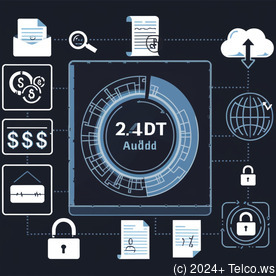
Understanding API Security: A Comprehensive Guide
Introduction
As digital transformation continues to reshape the landscape of how businesses operate and interact with customers, Application Programming Interfaces (APIs) have emerged as a foundational technology. APIs enable seamless communication between different software applications, leading to enhanced functionality, improved user experiences, and new business opportunities. However, the rise in API utilization also brings significant security challenges that organizations must address. This article delves deeply into the various aspects of API security, the threats associated with unsecured APIs, best practices for implementing security measures, and the tools and technologies available to protect your APIs.




What is API Security?
API security refers to the set of practices and methodologies used to protect APIs from malicious attacks, unauthorized access, and data breaches. It involves securing endpoints and data that are exposed through APIs, ensuring that only authorized users can access or manipulate the data, and safeguarding against threats such as injection attacks, data breaches, distributed denial of service (DDoS) attacks, and other vulnerabilities that can compromise API functionality.




Importance of API Security
- Data Protection: APIs often handle sensitive user data, making them prime targets for cybercriminals. Ensuring API security is crucial to preventing data breaches, which can lead to financial losses, reputational damage, and compliance issues.
- Preserving Integrity: APIs are integral to business operations, and any disruption can have cascading effects. Securing APIs helps maintain their integrity and ensures uninterrupted services.
- Compliance: Various regulations, such as the General Data Protection Regulation (GDPR) and the California Consumer Privacy Act (CCPA), impose strict security requirements on organizations that collect and handle personal data. Robust API security practices help businesses adhere to these regulations.
- User Trust: Users are increasingly aware of security threats. Demonstrating a commitment to API security can enhance customer trust and build long-term relationships.




Common Threats to API Security
- Authentication Vulnerabilities: One of the most common threats is the exploitation of weak or improper authentication mechanisms, allowing attackers unauthorized access.
- Insufficient Authorization: Even if an API is authenticated, it may not enforce proper authorization checks, leading to inappropriate data access.
- Data Exposure: Misconfigured APIs or overly permissive permissions can inadvertently expose sensitive data.
- Injection Attacks: APIs are susceptible to injection attacks where attackers send malicious data, resulting in unauthorized access or data manipulation.
- DDoS Attacks: APIs can be targets for DDoS attacks, overwhelming the server with excessive requests.
- Insecure Transport Layer: APIs not using secure transport protocols like HTTPS can have data intercepted during transit.




Best Practices for API Security
- Implement Strong Authentication and Authorization: Use mechanisms such as OAuth 2.0 and ensure authorization checks are enforced at the API level.
- Use HTTPS: Encrypt all API traffic using HTTPS to protect data in transit.
- Secure API Endpoints: Define strict rate limits and monitor for unusual activity.
- Data Validation and Sanitization: Implement rigorous input validation to guard against injection attacks.
- Error Handling Best Practices: Avoid exposing sensitive information in error messages.
- Conduct Regular Security Audits and Testing: Schedule regular tests to identify and address vulnerabilities.
- API Monitoring and Logging: Keep logs of who accessed the API and monitor for unusual patterns.
- Educate and Train Staff: Continuously educate developers on security best practices.




API Security Tools and Technologies
- API Gateways: Centralized points for managing and securing APIs, such as Amazon API Gateway and Apigee.
- Web Application Firewalls (WAF): These provide additional security by filtering incoming traffic.
- Identity and Access Management (IAM): Solutions like Azure Active Directory help manage user identities and access rights.
- API Security Scanners: Tools that can identify vulnerabilities in APIs, including Burp Suite and Postman.
- API Security Platforms: Companies like Salt Security offer specialized solutions for comprehensive API security.




Conclusion
API security is a critical aspect of modern digital infrastructure. As APIs become increasingly integral to business operations, it is essential to understand the threats they face and how to protect them effectively. By implementing strong authentication mechanisms, utilizing encryption, conducting regular security assessments, and employing the right tools, organizations can significantly mitigate risks and protect their assets.




Call to Action
Interested in buying? As stated, the price for our service is $249 per month. Please proceed to our Checkout Gateway and use our Payment Processor to pay the indicated amount of $249 in favor of our Company, following the instructions. Once you have paid, please contact us via email, phone, or site with the payment receipt and your details to arrange the Security Service. Thanks for your interest/patronage.




